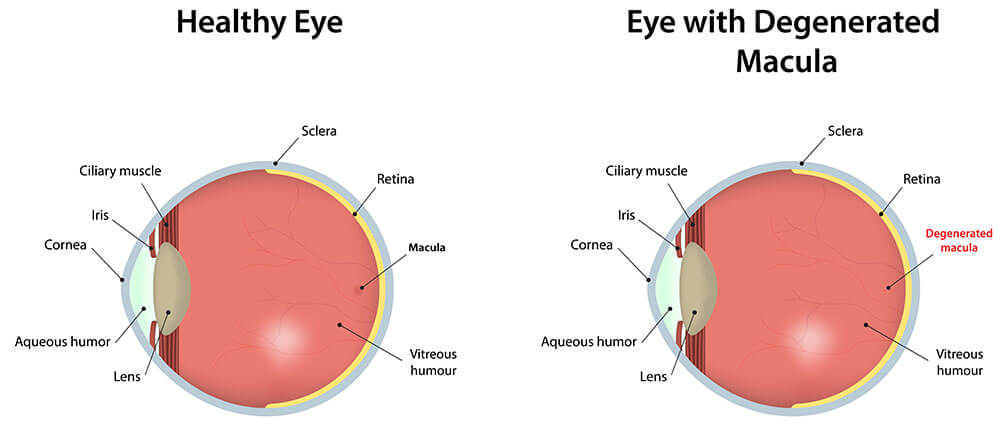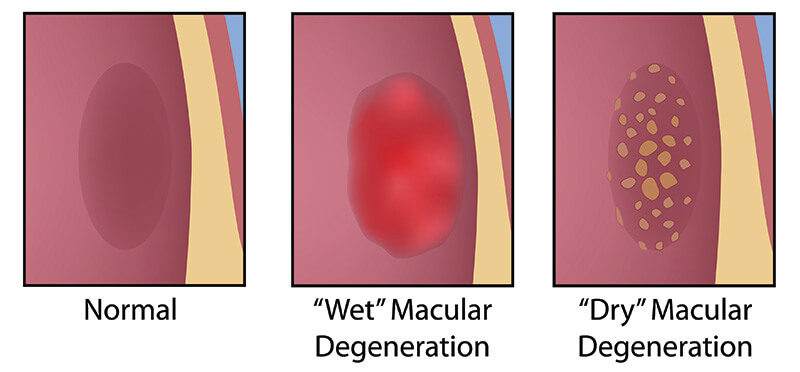
Macular degeneration, also known as AMD, is an eye condition that causes vision loss at the center of your field of vision. It’s also the most common cause of severe vision loss in people 50 and older. At Berg Eye Group, our friendly and compassionate team of eye doctors is here to enhance your vision and eye health.
Macular degeneration is an eye condition that occurs when the macula becomes damaged. The macula is part of the retina, which senses light and sends signals to your brain, allowing you to see.

If you have AMD, it will affect your central vision, meaning you’ll lose the ability to see fine details. You’ll still have your peripheral vision but tasks like reading and driving will often become much more challenging.
If you have macular degeneration, you may experience symptoms like:
As these symptoms are not exclusive to AMD, see your eye doctor at Berg Eye as soon as possible if you start noticing these signs. They may be symptoms of another eye condition.
There are two kinds of macular degeneration: wet and dry. Of the two, wet macular degeneration is far less common.

With dry macular degeneration, about 80% of patients with AMD have this form. Dry macular degeneration forms when parts of the macula get thinner due to aging.
As the macula gets thinner, it allows small clumps of a protein called drusen to grow. Drusen are tiny yellow deposits that form under the macula, which cause it to become weaker and dry out.
As this occurs, the macula loses its ability to function correctly. Dry macular degeneration progresses slowly but may turn to wet AMD over time. There is no cure for dry macular degeneration.
The less common form of macular degeneration is wet macular degeneration. In the wet form, abnormal, leaky blood vessels begin developing on the macula.
These weaker vessels typically leak blood or fluid, which scars the macula. You may experience a rapid loss of central vision when this occurs.
Wet AMD can happen very quickly, but there are ways to treat it.
At Berg Eye Group, if you have macular degeneration, you’ll work with your eye doctor to determine the best way to treat your condition. Our doctors use OCT (optical coherence tomography) to take cross-section images of your retina. Using OCT is the most accurate and precise way to see each of the retina’s layers and map and measure their thickness to monitor for AMD progression.
If you have dry macular degeneration, we will monitor your eyes periodically, and we may recommend antioxidant vitamins to decrease your risk of further vision loss. If you develop wet macular degeneration, you will be referred to a retinal specialist for further management.
Treating wet macular degeneration usually includes anti-VEGF injections. These injections help stop the production of VEGF, which leads to the development of abnormal blood vessels in the retina. Patients requiring anti-VEGF injections are referred to and managed by retinal specialists.
As each patient is different, the Berg Eye team will develop an individual treatment plan depending on the health of your macula.
Are you looking for more information about how to treat macular degeneration? Learn more by scheduling an appointment at Berg Eye Group in Albany, GA, today.